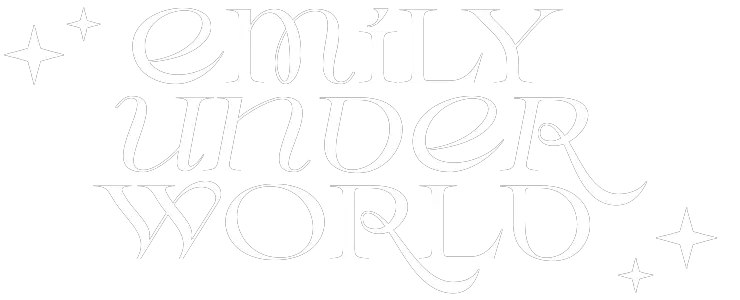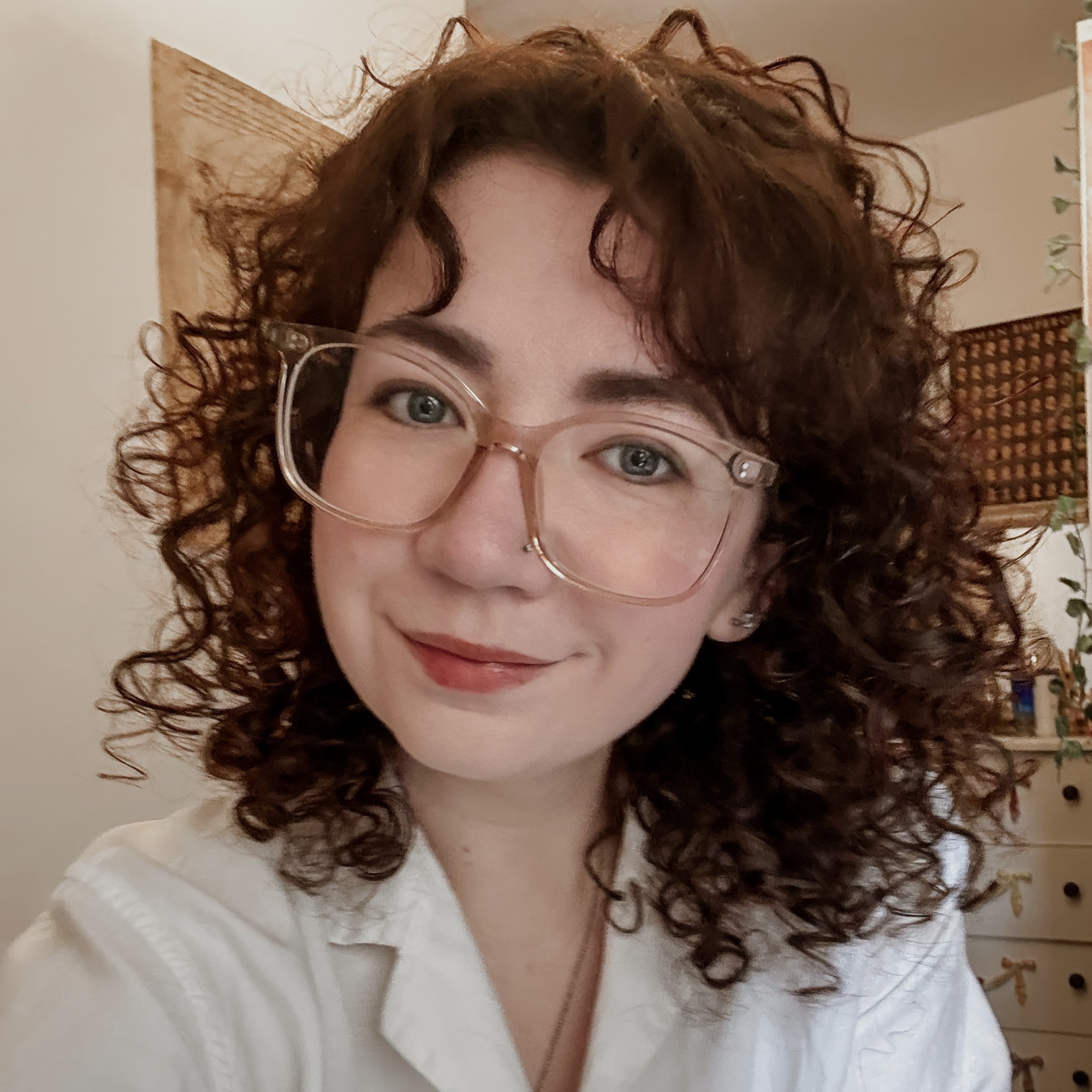Witchcraft for beginners can be very confusing and contradictory.
There are so many books out there, and you might be tempted to fill your shelves with witchcraft books.
While I encourage learning from a variety of sources, some books aren’t great for new witches. Some books aren’t great for anyone to be honest, but we’ll get into that.
I am not writing this blog post to bash the authors. I will try to point out the positives in each book mentioned. This is a follow-up to my witchcraft for beginners blog post.
I featured some books in that post, but didn’t go into a lot of detail. I hope this is helpful for new witches!
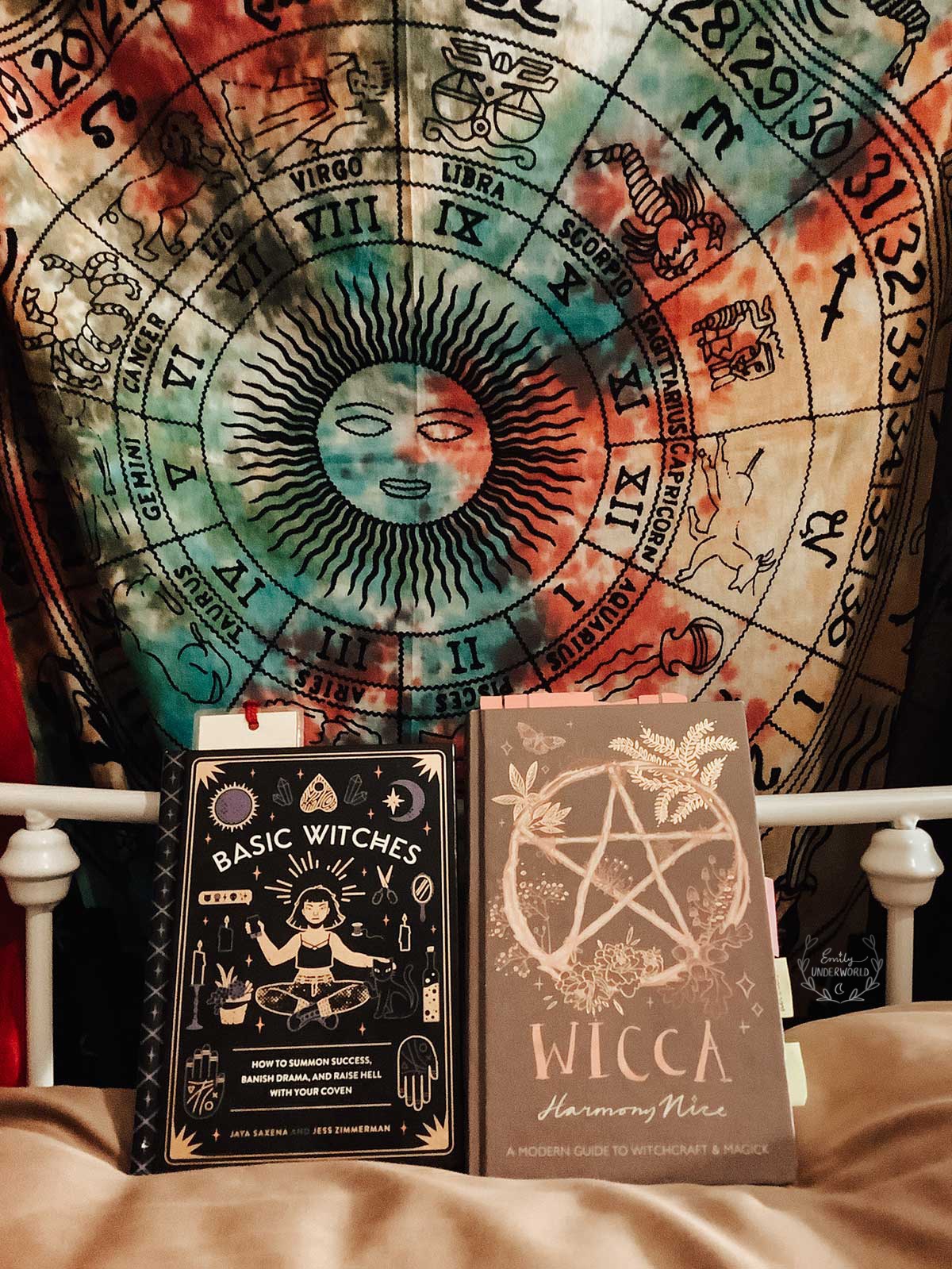
A disclaimer: I am an eclectic witch. I’m a pagan from the UK, and a white cisgender woman. This is important to point out, because I am not a member of any ethnic minority, and I am not discriminated against because of my beliefs.
I believe that anyone can practice witchcraft: men, women, and non-binary folk. I am against cultural appropriation and do not use any closed/indigenous practice in my craft.
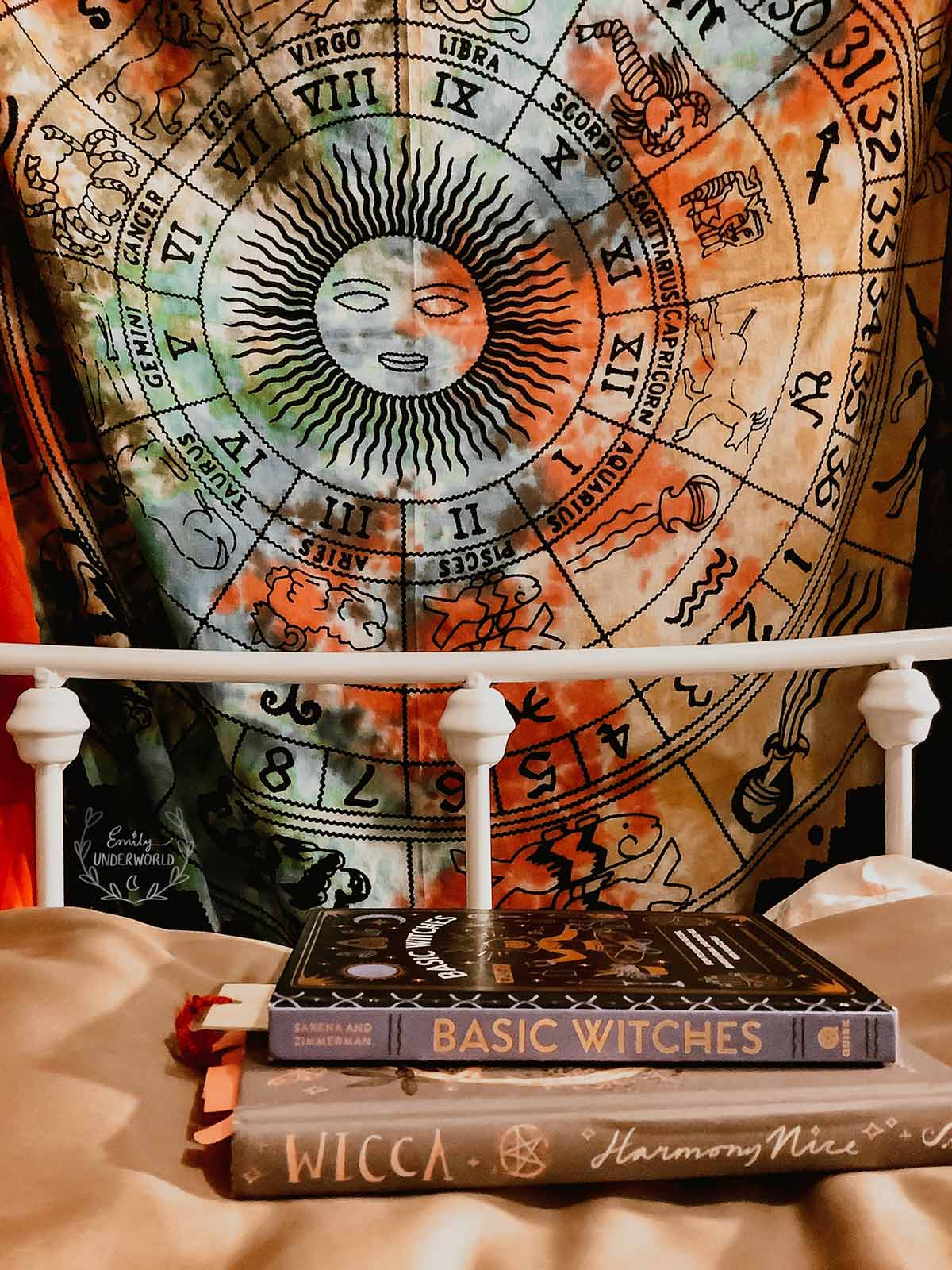
Okay. Now that’s out of the way, here are the witchcraft books I’ve personally read and don’t recommend, for various reasons.
This blog post won’t be entirely negative: I’ll highlight the parts I liked from each book, and recommend some useful witchcraft books for beginners.
Also please keep in mind that these are just my opinions, you might disagree!
I don’t have anything against the witches who wrote these books, nor have I read any other works they’ve written. If one book isn’t great, that doesn’t mean their future books won’t be brilliant!
Witchcraft is a lifelong journey of study, self-exploration, and connection with the Earth. As with every spiritual practice, our beliefs evolve with time and practice.
Witchcraft Books I Don’t Recommend
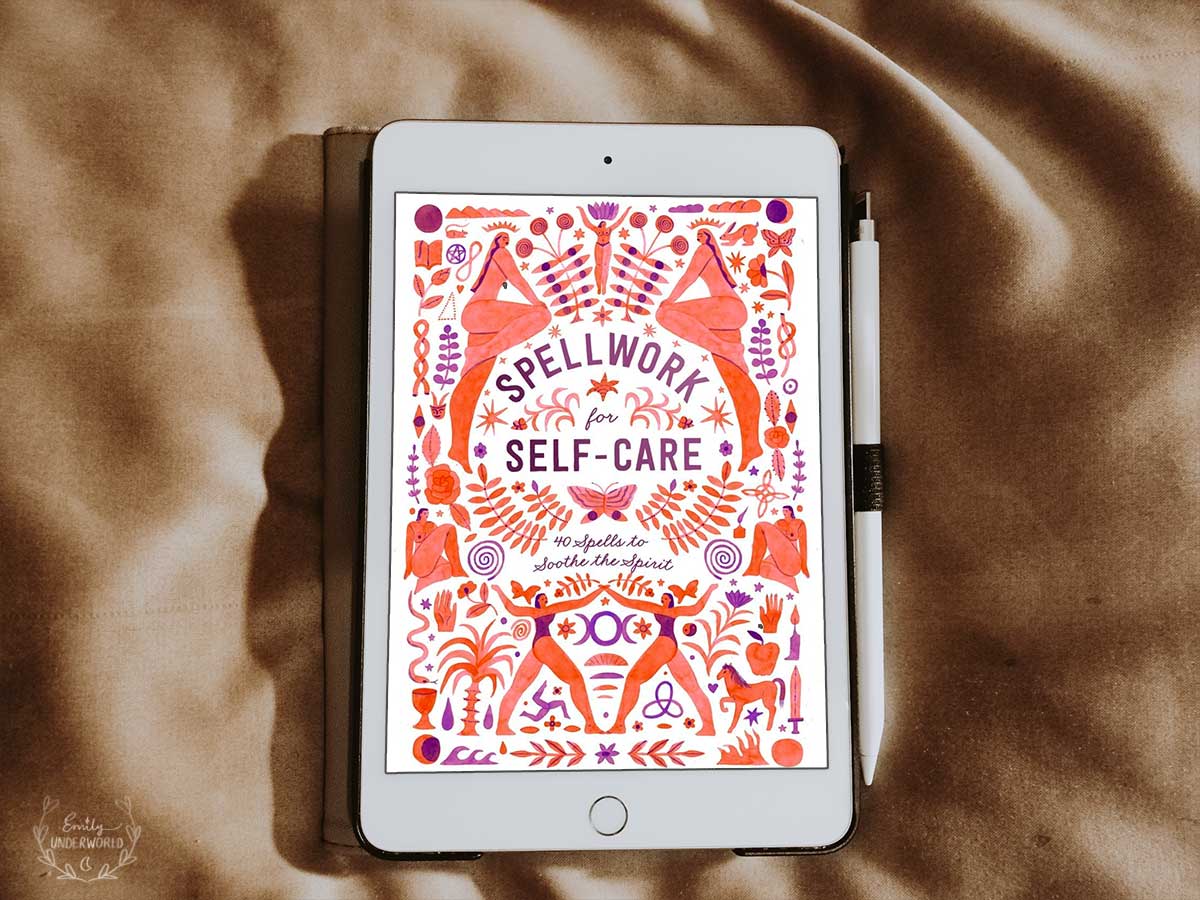
Spellwork for Self-Care: 40 Spells to Soothe the Spirit by Potter Gift.
The Good:
- I liked the design, the watercolour illustrations, and the way it’s set up.
- Features useful things for complete beginners, e.g. grounding, casting a circle, correspondences.
- As the title suggests, there are 40 spells in this book, and most of them are simple. I prefer to write my own spells, but some people might find this useful for direction. I appreciate that most of the spell ingredients include everyday household objects.
- It uses inclusive language like ‘people who menstruate’, which is great!
The Bad:
- Some parts seem to encourage cultural appropriation, e.g. the Goddess Oshun, an important river deity worshipped by Yorùbá people in West Africa.
- Deities are not spell ingredients. This felt disrespectful, especially as some deities are exclusive to BIPOC communities.
- There are better beginner books, so it’s not necessary to read this.
Overall, I didn’t hate it, and I appreciated some parts. However, I don’t particularly recommend it either. If you’re a beginner, this will contain useful information to help guide you, but please be respectful of deities and other cultures.

Witch: Unleashed. Untamed. Unapologetic. by Lisa Lister.
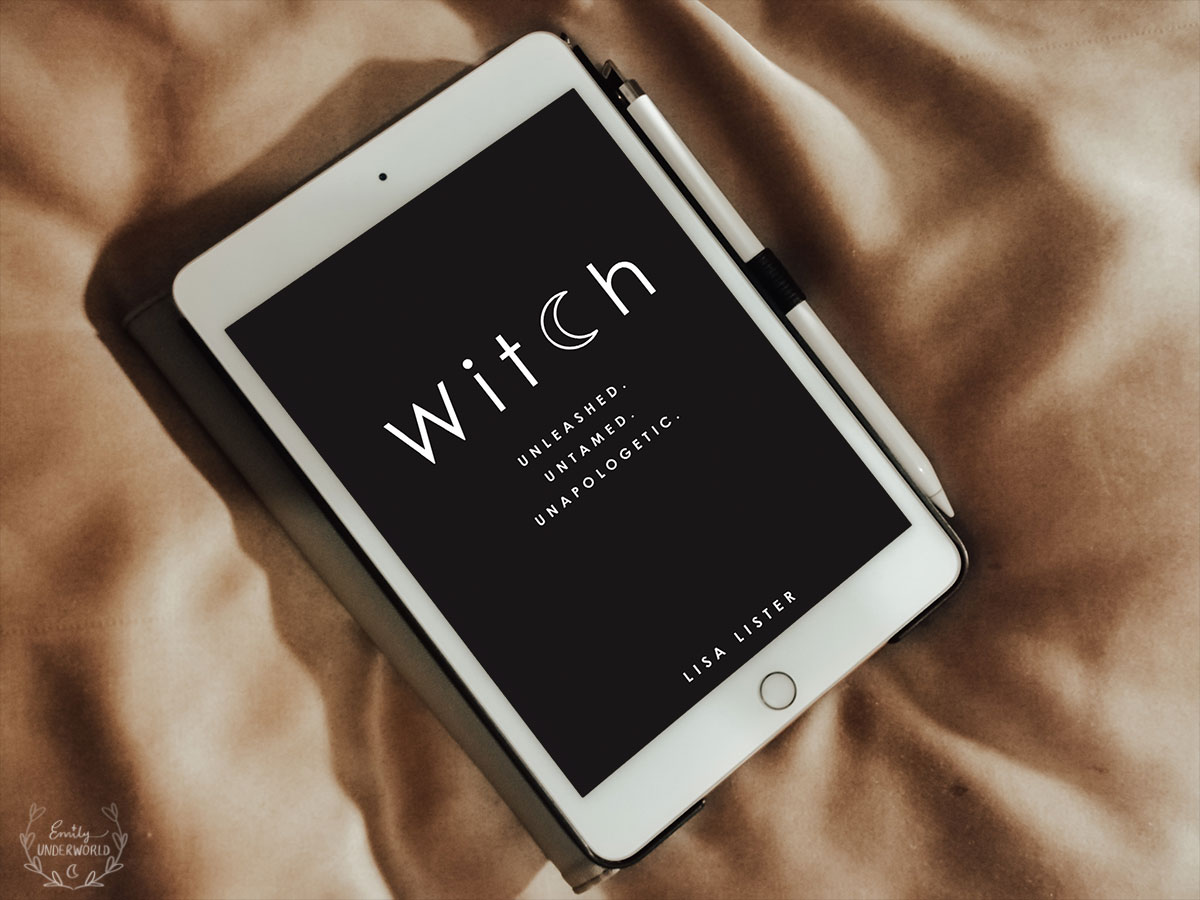
The Good:
I can’t say that any of it was good to be honest.
The Bad:
- This book has such a focus on the womb and vagina! Not all women have wombs, and men can be witches. It’s not inclusive at all, and comes across as transphobic.
- It doesn’t actually have much content about witchcraft, it’s mostly just a TERF book, complete with outdated attitudes.
- Some parts were anti-science, which I don’t agree with.
- Don’t read this.

Basic Witches by Jaya Saxena and Jess Zimmerman.
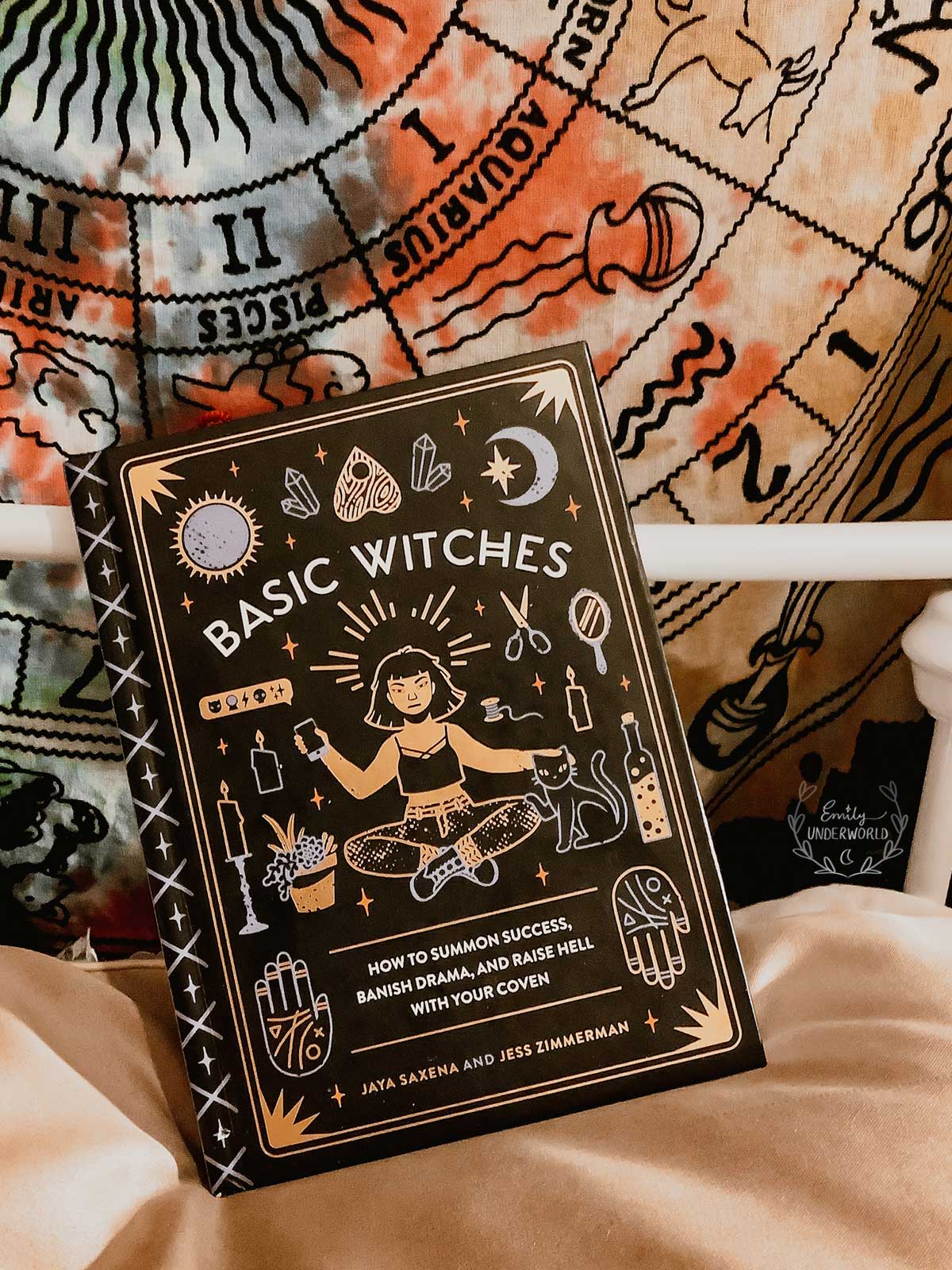
The Good:
A fun little book with beautiful illustrations.
The Bad:
- You can’t genuinely learn about witchcraft from this book. The title is deceptive.
- It seems more like a joke / light-hearted self-help book for teens, rather than a witchcraft book.
- It makes witchcraft seem like a ‘quirky hobby’ or a way to be ‘rebellious’ rather than a legitimate practice.
- A lot of this book focuses on mental health, but without any actual mental health advice. I think this is dangerous: you can’t cure self-esteem issues with a ‘fun’ spell.
- No further reading or bibliography… at all.
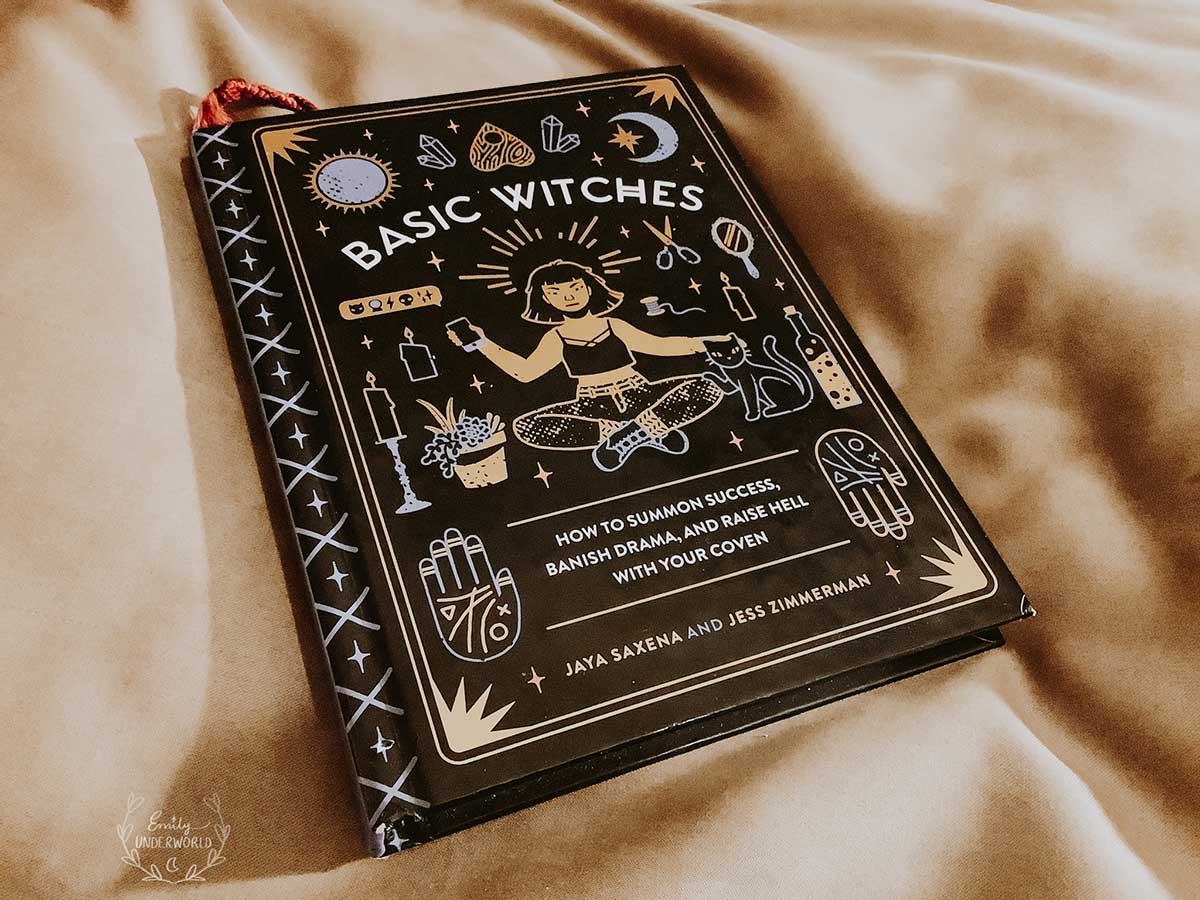

Grimoire of a Kitchen Witch by Rachel Patterson.
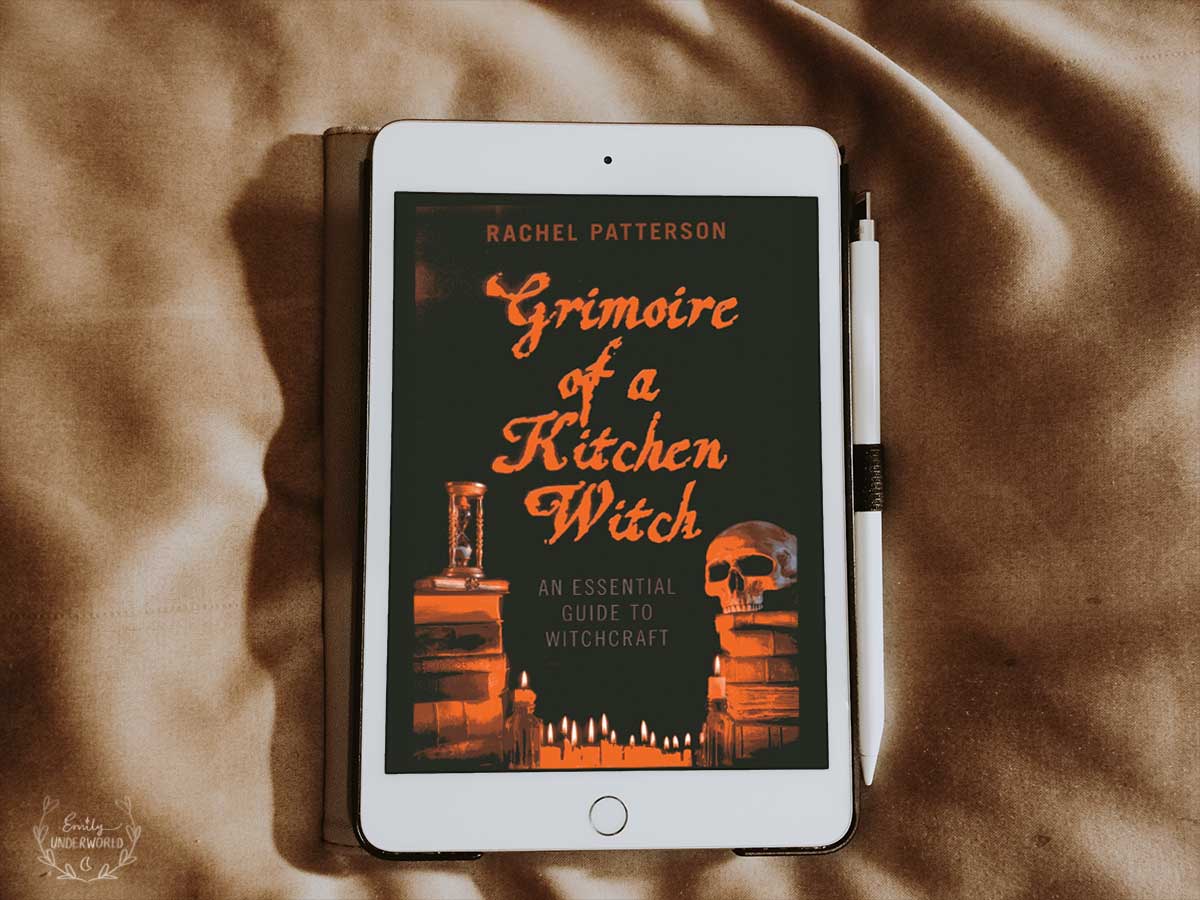
The Good:
I’m not a kitchen witch, but I do like to read witchcraft books from different types of practitioners. It’s nice to see how other people practice their craft.
The Bad:
- The Hoodoo section is a disrespectful mess.
- The use of smiley faces in the text, e.g. :) annoyed me. It might not bother you, but I thought I’d mention that.
- Not well-edited, and reads more like a diary / journal than a book. Basically, it’s unorganised.
- The tagline ‘essential guide to witchcraft’ is very misleading.
- Wouldn’t recommend for beginners, because it can be confusing.
- I expected more recipes, considering this is written by a kitchen witch.

Wicca by Harmony Nice.
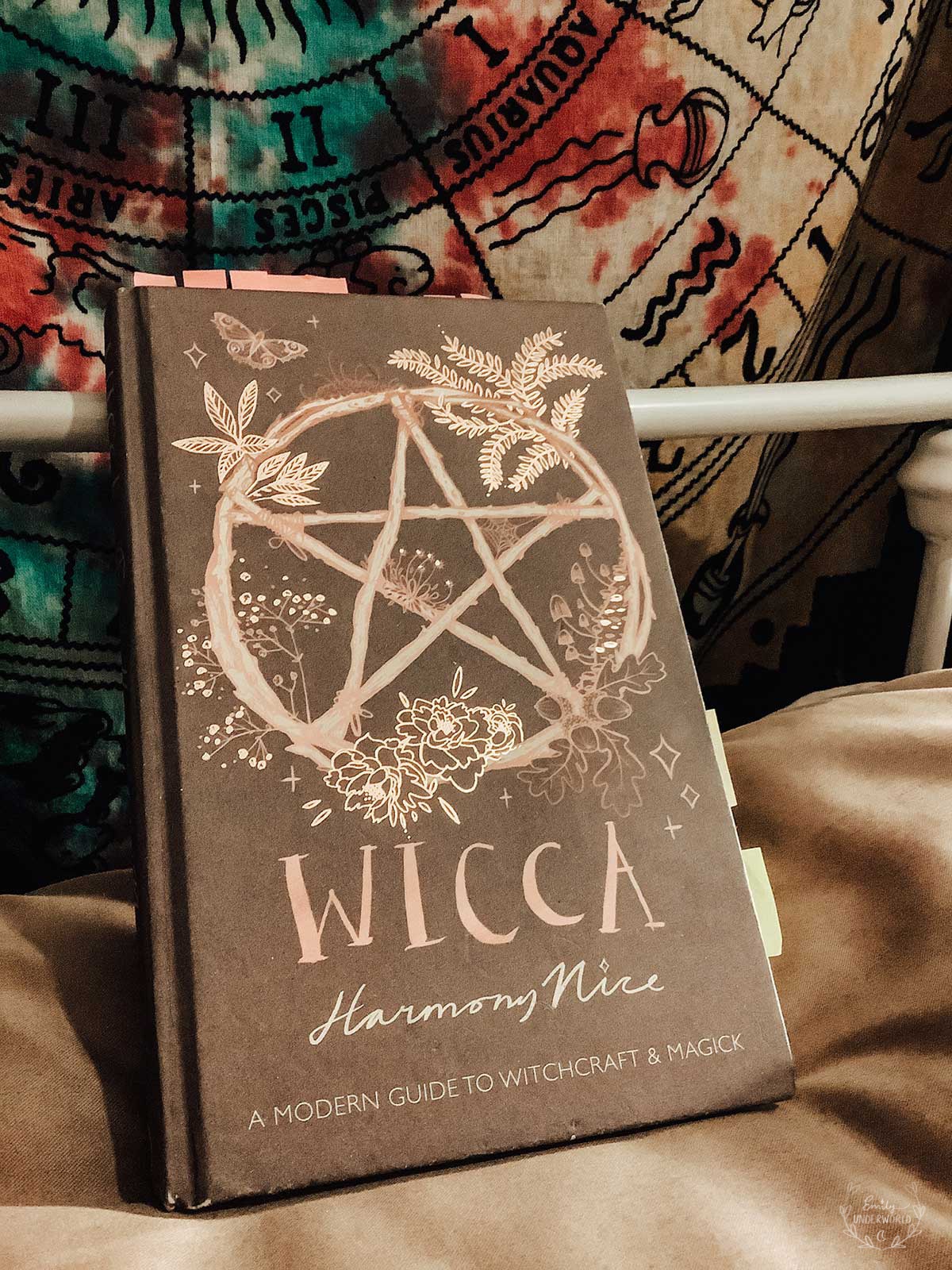
Please keep in mind that I’m not a Wiccan.
I read this book because I enjoy Harmony’s online content, and I like to learn about different cultures and magickal practices.
I enjoyed reading it until I learned more about Wicca, and realised that there is a lot missing from Harmony’s book.
The Good:
- I mean, it’s a pretty beautiful book. The illustrations are lovely.
- The lists of herbs and Sabbats are laid out in a simple way.
- Useful guidance, e.g. what to do when others don’t accept your craft, and advice for witches on social media (stop comparing yourself!).
- Features some spells to try towards the end.
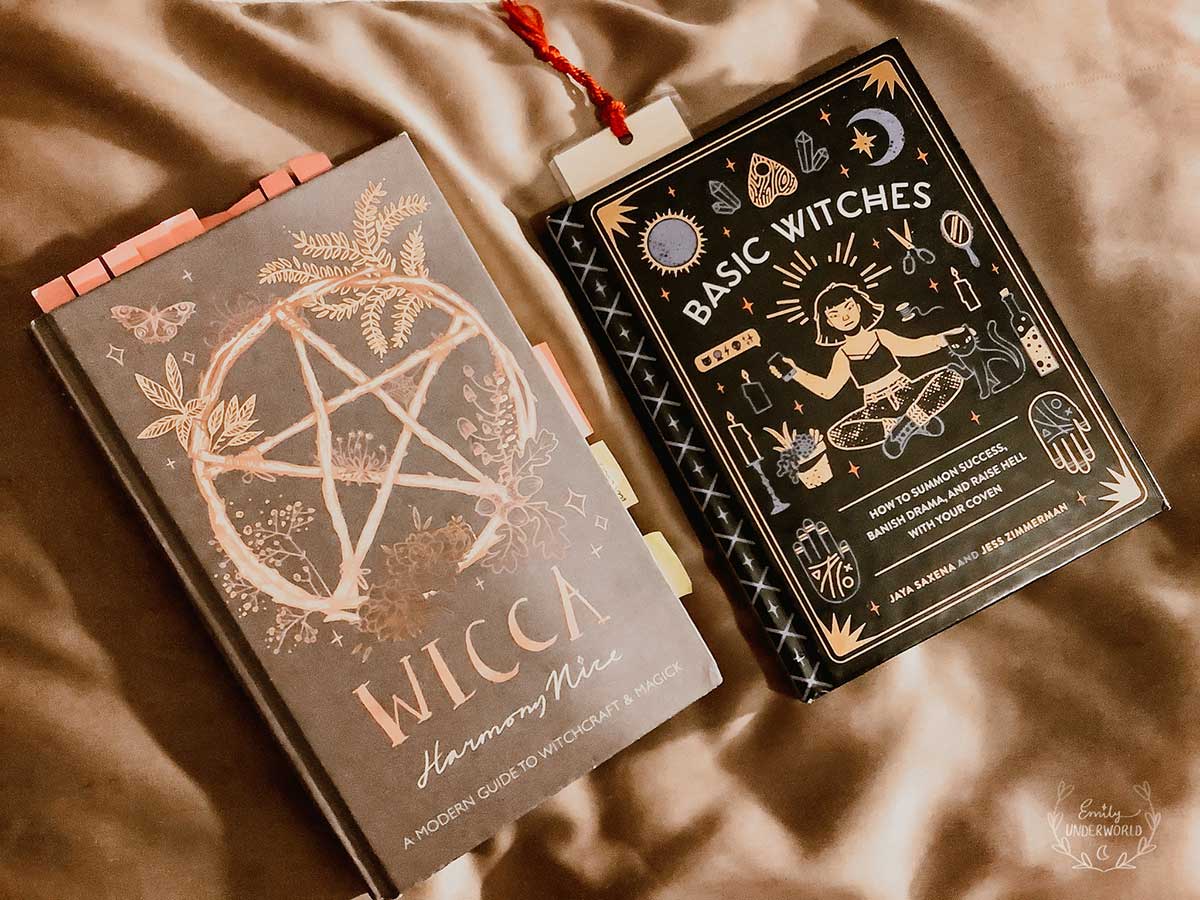
The Bad:
- You’d be better off reading Scott Cunningham’s books. The bibliography of Wicca by Harmony Nice only features 4 books, 3 of which are by Cunningham. Harmony states herself that “Scott would become my inspiration and guide for 80 per cent of everything I’ve ever done in my Wicca journey” on page 3 of her book.
- The chapter order made very little sense to me. For example, writes about Divination before the very basics, like Meditation and a Book of Shadows.
- Not much information about the history of Wicca, e.g. Gardner. Very strange for a book about Wicca. Also seems to ignore dates and doesn’t mention cultures that practices originate from, for example, the Elder Futhark alphabet.
- No mention of Doreen Valiente, despite the Wiccan Rede featured. Same with defining the word Magick without mentioning Aleister Crowley.
- Harmony seems to encourage spirituality as self-care. I personally feel that this can undervalue spirituality, and make it seem like a tool for mental health. While I’m a huge advocate for self-care, and agree that mindfulness is very powerful for mental health, witchcraft isn’t always positive. Remember that Wicca is a religion, not a self-improvement product.

Witchcraft Books I Recommend for New Witches:
- Traditional Wicca: A Seeker’s Guide by Thorn Mooney. (Shop on Amazon)
- Cunningham’s Encyclopedia of Magical Herbs. (Shop on Amazon)
- Year of the Witch by Temperance Alden. (Shop on Amazon)
- Natural Magic by Doreen Valiente. (Shop on Amazon)
- Psychic Witch by Mat Auryn. (Shop on Amazon)
- Craft by Gabriela Herstik. (Shop on Amazon)

I hope you found this helpful, especially if you’re new to witchcraft. I’m always reading about magick, spirituality and the occult; I’ll write more books reviews in the future.
I always recommend checking out Goodreads reviews before purchasing books! You’re welcome to add me on Goodreads if you like.
Make sure to read my post about spiritual bypassing, and my witchcraft for beginners guide.
All the best,


